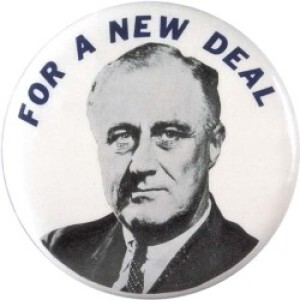
- Podcast Features
-
Monetization
-
Ads Marketplace
Join Ads Marketplace to earn through podcast sponsorships.
-
PodAds
Manage your ads with dynamic ad insertion capability.
-
Apple Podcasts Subscriptions Integration
Monetize with Apple Podcasts Subscriptions via Podbean.
-
Live Streaming
Earn rewards and recurring income from Fan Club membership.
-
Ads Marketplace
- Podbean App
-
Help and Support
-
Help Center
Get the answers and support you need.
-
Podbean Academy
Resources and guides to launch, grow, and monetize podcast.
-
Podbean Blog
Stay updated with the latest podcasting tips and trends.
-
What’s New
Check out our newest and recently released features!
-
Podcasting Smarter
Podcast interviews, best practices, and helpful tips.
-
Help Center
-
Popular Topics
-
How to Start a Podcast
The step-by-step guide to start your own podcast.
-
How to Start a Live Podcast
Create the best live podcast and engage your audience.
-
How to Monetize a Podcast
Tips on making the decision to monetize your podcast.
-
How to Promote Your Podcast
The best ways to get more eyes and ears on your podcast.
-
Podcast Advertising 101
Everything you need to know about podcast advertising.
-
Mobile Podcast Recording Guide
The ultimate guide to recording a podcast on your phone.
-
How to Use Group Recording
Steps to set up and use group recording in the Podbean app.
-
How to Start a Podcast
-
Podcasting
- Podcast Features
-
Monetization
-
Ads Marketplace
Join Ads Marketplace to earn through podcast sponsorships.
-
PodAds
Manage your ads with dynamic ad insertion capability.
-
Apple Podcasts Subscriptions Integration
Monetize with Apple Podcasts Subscriptions via Podbean.
-
Live Streaming
Earn rewards and recurring income from Fan Club membership.
-
Ads Marketplace
- Podbean App
- Advertisers
- Enterprise
- Pricing
-
Resources
-
Help and Support
-
Help Center
Get the answers and support you need.
-
Podbean Academy
Resources and guides to launch, grow, and monetize podcast.
-
Podbean Blog
Stay updated with the latest podcasting tips and trends.
-
What’s New
Check out our newest and recently released features!
-
Podcasting Smarter
Podcast interviews, best practices, and helpful tips.
-
Help Center
-
Popular Topics
-
How to Start a Podcast
The step-by-step guide to start your own podcast.
-
How to Start a Live Podcast
Create the best live podcast and engage your audience.
-
How to Monetize a Podcast
Tips on making the decision to monetize your podcast.
-
How to Promote Your Podcast
The best ways to get more eyes and ears on your podcast.
-
Podcast Advertising 101
Everything you need to know about podcast advertising.
-
Mobile Podcast Recording Guide
The ultimate guide to recording a podcast on your phone.
-
How to Use Group Recording
Steps to set up and use group recording in the Podbean app.
-
How to Start a Podcast
-
Help and Support
- Discover

On this day in Labor History the years was 1935.
That was the day that President Franklin Delano Roosevelt signed the Revenue Tax Act, more popularly known as the “Wealth Tax.”
The act reformed the federal income tax to raise rates on the wealthiest in the nation.
Those making over $5 million could pay taxes up to seventy-five percent.
In a speech to Congress that summer, Roosevelt had explained his thoughts on wealth and taxes.
The President said,
“Wealth in the modern world does not come merely from individual effort;
it results from a combination of individual effort and of the manifold uses to which the community puts that effort.
The individual does not create the product of his industry with his own hands;
he utilizes the many processes and forces of mass production to meet the demands of a national and international market.
Therefore, in spite of the great importance in our national life of the efforts and ingenuity of unusual individuals,
the people in the mass have inevitably helped to make large fortunes possible.
Without mass cooperation great accumulations of wealth would 'be 'impossible save by unhealthy speculation.
As Andrew Carnegie put it, "Where wealth accrues honorably, the people are · always silent partners."
Whether it be wealth achieved through the cooperation of the entire community or riches gained by speculation—in either case the ownership of such wealth or riches represents a great public interest and a great ability to pay.”
Although President Roosevelt tried to win over the nation's wealthy by quoting industrialist Andrew Carnegie, he did not gain their support.
Not surprisingly many of the national’s wealthy lobbied for and used tax loopholes to evade paying the new rates.
More Episodes
 2026-01-25
2026-01-25
 2026-01-24
2026-01-24
 2026-01-23
2026-01-23
 2026-01-21
2026-01-21
 2026-01-20
2026-01-20
 2026-01-19
2026-01-19
 2026-01-18
2026-01-18
 2026-01-17
2026-01-17
 2026-01-13
2026-01-13
 2026-01-11
2026-01-11
 2026-01-10
2026-01-10
 2026-01-09
2026-01-09
 2026-01-08
2026-01-08
 2026-01-07
2026-01-07
 2026-01-06
2026-01-06
Create your
podcast in
minutes
- Full-featured podcast site
- Unlimited storage and bandwidth
- Comprehensive podcast stats
- Distribute to Apple Podcasts, Spotify, and more
- Make money with your podcast
It is Free
- Privacy Policy
- Cookie Policy
- Terms of Use
- Consent Preferences
- Copyright © 2015-2026 Podbean.com


